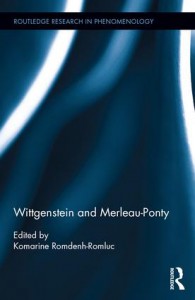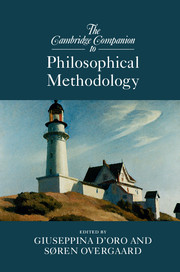Thomas Szanto, Postdoctoral Research Fellow at CFS, on a Complex Affective Trias

Thanks to my generous Marie Curie project funding (SHARE), recently, I could spend three wonderful months in Europe’s probably most vibrant capital, Berlin—vibrant not only in terms of its notorious night-life, but just as much in terms of its research community.
From May to July I was a Visiting Researcher at the DFG-funded Collaborative Research Center (CRS), “Affective Societies: Dynamics of Social Coexistence in Mobile Worlds” http://www.sfb-affective-societies.de/en/index.html. The CRS is an interdisciplinary research platform, spanning 11 disciplines and involving 70 researchers, based at the Freie Universität Berlin and lead, as Co-PIs, by the philosopher Jan Slaby (http://www.janslaby.com/), who kindly invited and hosted me for the research stay, and the sociologist Christian von Scheve (http://www.polsoz.fu-berlin.de/soziologie/arbeitsbereiche/emotionen/team/Professur/scheve.html).
I immensely profited from discussions with Jan and Christian and other colleagues at FU Berlin. The forthcoming paper on “Emotional Self-Alienation”, which I was mainly working on during my stay, was much inspired by their exciting work, in particular, by Christian’s work on “feeling norms” (esp. von Scheve 2012, 2013), and Jan’s work on the exploitative and manipulative flip-side of situated and extended cognition approaches (esp. Slaby 2017).
Read moreThomas Szanto / Emotional Capitalism, Invasion and Self-Alienation
 I am writing from my home in Sheffield, nearly two weeks after returning from Copenhagen where I spent the month of September ensconced in the research community at the Center for Subjectivity Research. I spent that time quietly getting on with some work of my own, but every day discussing various philosophical issues with the Center’s members (to my great advantage). I have nothing but very warm memories of the academic environment and how kindly I was welcomed into it for a month.
I am writing from my home in Sheffield, nearly two weeks after returning from Copenhagen where I spent the month of September ensconced in the research community at the Center for Subjectivity Research. I spent that time quietly getting on with some work of my own, but every day discussing various philosophical issues with the Center’s members (to my great advantage). I have nothing but very warm memories of the academic environment and how kindly I was welcomed into it for a month. These days, my 2 years stay as a visiting post doc at the Center for Subjectivity Research comes to an end. It has been a great time of learning and also a great pleasure. The people working at or visiting the Center have provided me with valuable feedback and hints for my work on collective atmospheres and also – though in a less theoretical way – with an impressive example of a good working atmosphere.
These days, my 2 years stay as a visiting post doc at the Center for Subjectivity Research comes to an end. It has been a great time of learning and also a great pleasure. The people working at or visiting the Center have provided me with valuable feedback and hints for my work on collective atmospheres and also – though in a less theoretical way – with an impressive example of a good working atmosphere. In the world of phenomenological publishing outlets, there is a new kid on the block:
In the world of phenomenological publishing outlets, there is a new kid on the block: 
 As promised in a previous blog post,
As promised in a previous blog post,